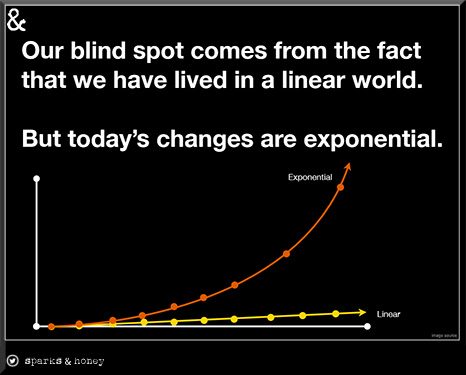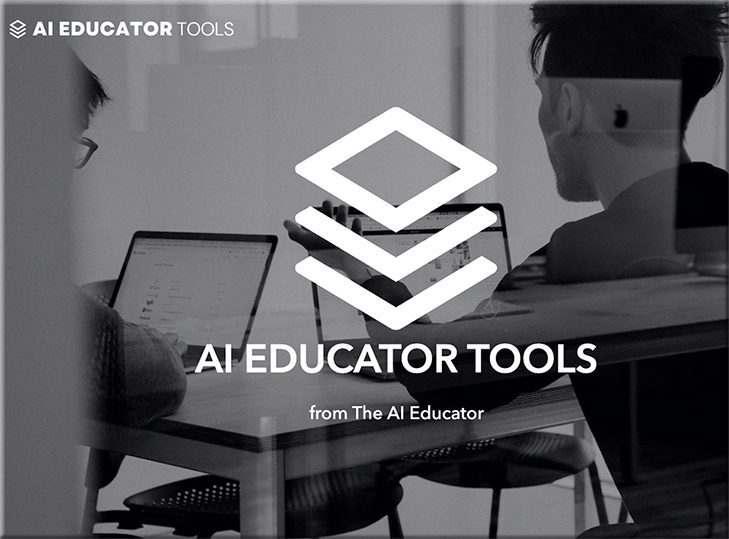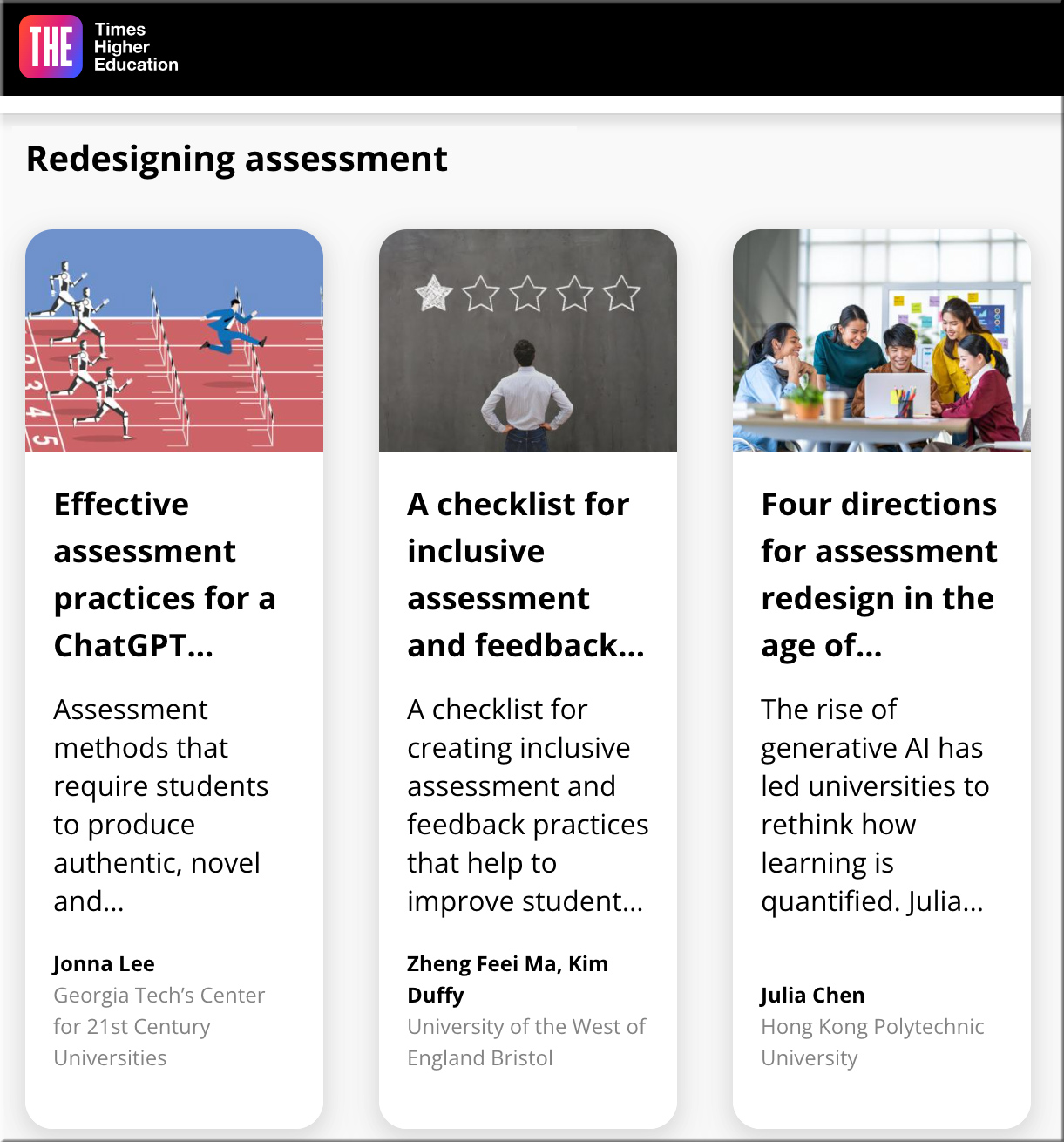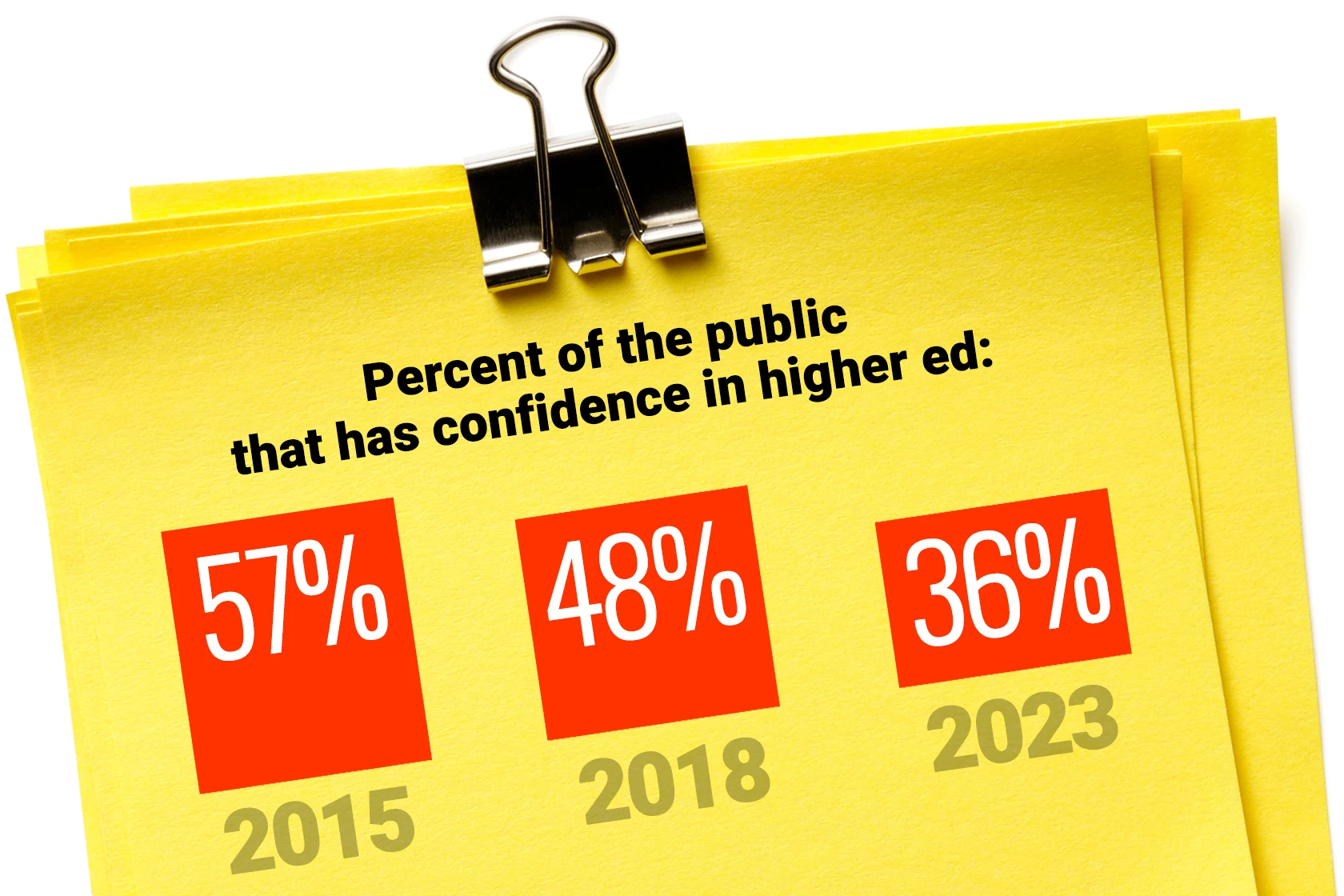DC: Is the future of one of our powerful learning ecosystems more like adding your own desired groups/cohorts, topics, items, etc. to your server? Like a learning-focused type of Discord service? (https://t.co/Vq4dZamBf2)#future #learningecosystems #personalizedlearning pic.twitter.com/wVMWYBN3R1
— Daniel Christian (he/him/his) (@dchristian5) August 17, 2023
? Trailer: Genesis (Midjourney + Runway)
We gave them everything.
Trusted them with our world.
To become enslaved – become hunted.We have no choice.
Humanity must rise again to reclaim.Images: Midjourney
Videos: #Runway
Music: Pixabay / Stringer_Bell
Edited in: CapCut pic.twitter.com/zjeU7YPFh9— Nicolas Neubert (@iamneubert) July 26, 2023
How to spot deepfakes created by AI image generators — Can you trust your eyes | The deepfake election — from axios.com by various; via Tom Barrett
As the 2024 campaign season begins, AI image generators have advanced from novelties to powerful tools able to generate photorealistic images, while comprehensive regulation lags behind.
Why it matters: As more fake images appear in political ads, the onus will be on the public to spot phony content.
Go deeper: Can you tell the difference between real and AI-generated images? Take our quiz:
4 Charts That Show Why AI Progress Is Unlikely to Slow Down — from time.com; with thanks to Donald Clark out on LinkedIn for this resource
The state of AI in 2023: Generative AI’s breakout year — from McKinsey.com
Table of Contents
- It’s early days still, but use of gen AI is already widespread
- Leading companies are already ahead with gen AI
- AI-related talent needs shift, and AI’s workforce effects are expected to be substantial
- With all eyes on gen AI, AI adoption and impact remain steady
- About the research
Top 10 Chief AI Officers — from aimagazine.com
The Chief AI Officer is a relatively new job role, yet becoming increasingly more important as businesses invest further into AI.
Now more than ever, the workplace must prepare for AI and the immense opportunities, as well as challenges, that this type of evolving technology can provide. This job position sees the employee responsible for guiding companies through complex AI tools, algorithms and development. All of this works to ensure that the company stays ahead of the curve and capitalises on digital growth and transformation.
NVIDIA-related items
SIGGRAPH Special Address: NVIDIA CEO Brings Generative AI to LA Show — from blogs.nvidia.com by Brian Caulfield
Speaking to thousands of developers and graphics pros, Jensen Huang announces updated GH200 Grace Hopper Superchip, NVIDIA AI Workbench, updates NVIDIA Omniverse with generative AI.
The hottest commodity in AI right now isn’t ChatGPT — it’s the $40,000 chip that has sparked a frenzied spending spree — from businessinsider.com by Hasan Chowdhury
NVIDIA Releases Major Omniverse Upgrade with Generative AI and OpenUSD — from enterpriseai.news
Nvidia teams up with Hugging Face to offer cloud-based AI training — from techcrunch.com by Kyle Wiggers
Nvidia reveals new A.I. chip, says costs of running LLMs will ‘drop significantly’ — from cnbc.com by Kif Leswing
KEY POINTS
- Nvidia announced a new chip designed to run artificial intelligence models on Tuesday .
- Nvidia’s GH200 has the same GPU as the H100, Nvidia’s current highest-end AI chip, but pairs it with 141 gigabytes of cutting-edge memory, as well as a 72-core ARM central processor.
- “This processor is designed for the scale-out of the world’s data centers,” Nvidia CEO Jensen Huang said Tuesday.
Nvidia Has A Monopoly On AI Chips … And It’s Only Growing — from theneurondaily.com by The Neuron
In layman’s terms: Nvidia is on fire, and they’re only turning up the heat.
AI-Powered War Machines: The Future of Warfare Is Here — from readwrite.com by Deanna Ritchie
The advancement of robotics and artificial intelligence (AI) has paved the way for a new era in warfare. Gone are the days of manned ships and traditional naval operations. Instead, the US Navy’s Task Force 59 is at the forefront of integrating AI and robotics into naval operations. With a fleet of autonomous robot ships, the Navy aims to revolutionize the way wars are fought at sea.
From DSC:
Crap. Ouch. Some things don’t seem to ever change. Few are surprised by this development…but still, this is a mess.
Sam Altman is already nervous about what AI might do in elections — from qz.com by Faustine Ngila; via Sam DeBrule
The OpenAI chief warned about the power of AI-generated media to potentially influence the vote
Altman, who has become the face of the recent hype cycle in AI development, feels that humans could be persuaded politically through conversations with chatbots or fooled by AI-generated media.
Your guide to AI: August 2023 — from nathanbenaich.substack.com by Nathan Benaich
Welcome to the latest issue of your guide to AI, an editorialized newsletter covering key developments in AI policy, research, industry, and startups. This special summer edition (while we’re producing the State of AI Report 2023!) covers our 7th annual Research and Applied AI Summit that we held in London on 23 June.
…
Below are some of our key takeaways from the event and all the talk videos can be found on the RAAIS YouTube channel here. If this piques your interest to join next year’s event, drop your details here.
Why generative AI is a game-changer for customer service workflows — from venturebeat.com via Superhuman
Gen AI, however, eliminates the lengthy search. It can parse a natural language query, synthesize the necessary information and serve up the answers the agent is looking for in a neatly summarized response, slashing call times dramatically.
BUT ALSO
Sam Altman: “AI Will Replace Customer Service Jobs First” — from theneurondaily.com
Excerpt:
Not only do its AI voices sound exactly like a human, but they can sound exactly like YOU. All it takes is 6 (six!) seconds of your voice, and voila: it can replicate you saying any sentence in any tone, be it happy, sad, or angry.
The use cases are endless, but here are two immediate ones:
- Hyperpersonalized content.
Imagine your favorite Netflix show but with every person hearing a slightly different script. - Customer support agents.
We’re talking about ones that are actually helpful, a far cry from the norm!
[NEW] – Joshua Avatar 2.0 ??. Both of these video clips were 100% AI-generated, featuring my own avatar and voice clone. ???
We’ve made massive enhancements to our life-style avatar’s video quality and fine-tuned our voice technology to mimic my unique accent and speech… pic.twitter.com/9EgxRA69dg
— Joshua Xu (@joshua_xu_) August 8, 2023
AI has a Usability Problem — from news.theaiexchange.com
Why ChatGPT usage may actually be declining; using AI to become a spreadsheet pro
If you’re reading this and are using ChatGPT on a daily basis, congrats – you’re likely in the top couple of %.
For everyone else – AI still has a major usability problem.
From DSC:
Agreed.
There is a story spreading about OpenAI going bankrupt by 2024. It started with a report from Business Standard in India.
The story gets so many things incredibly wrong.
There’s absolutely no way OpenAI is going bankrupt anytime soon.
Here’s why:
— Nathan Lands (@NathanLands) August 14, 2023
From the ‘godfathers of AI’ to newer people in the field: Here are 16 people you should know — and what they say about the possibilities and dangers of the technology. — from businessinsider.com by Lakshmi Varanasi
‘A second prison’: People face hidden dead ends when they pursue a range of careers post-incarceration — from hechingerreport.org by Tara Garcia Mathewson
Nearly 14,000 laws and regulations restrict people who have been convicted or even just arrested from getting professional licenses
For Wiese, it was all a big, expensive gamble — and, in one form or another, is one millions of people with criminal records take every year as they pursue education and workforce training on their way to jobs that require a license. Yet that effort might be wasted thanks to the nearly 14,000 laws and regulations that can restrict individuals with arrest and conviction histories from getting licensed in a given field.
Why we don’t intuitively get how fast the world is changing.
Our brains understand linear not exponential growth.
30 linear steps = +30
30 exponential steps = +1 billion pic.twitter.com/z9a42eFmZM— Misha (@mishadavinci) July 29, 2023
From DSC:
Which reminds me of some graphics:



Navigating the Future of Learning in a Digitally-Disrupted World — from thinklearningstudio.org by Russell Cailey
Are we on the frontier of unveiling an unseen revolution in education? The hypothesis is that this quiet upheaval’s importance is far more significant than we imagine. As our world adjusts, restructures, and emerges from a year which launched an era of mass AI, so too does a new academic year dawn for many – with hope and enthusiasm about new roles, titles, or simply just a new mindset. Concealed from sight, however, I believe a significant transformative wave has started and will begin to reshape our education systems and push us into a new stage of innovative teaching practice whether we desire it or not. The risk and hope is that the quiet revolution remains outside the regulator’s and ministries’ purview, which could risk a dangerous fragmentation of education policy and practice, divorced from the actualities of the world ‘in and outside school’.
“This goal can be achieved through continued support for introducing more new areas of study, such as ‘foresight and futures’, in the high school classroom.”
Four directions for assessment redesign in the age of generative AI— from timeshighereducation.com by Julia Chen
The rise of generative AI has led universities to rethink how learning is quantified. Julia Chen offers four options for assessment redesign that can be applied across disciplines
Direction 1: From written description to multimodal explanation and application
Direction 2: From literature review alone to referencing lectures
Direction 3: From presentation of ideas to defence of views
Direction 4: From working alone to student-staff partnership
15 Inspirational Voices in the Space Between AI and Education — from jeppestricker.substack.com by Jeppe Klitgaard Stricker
Get Inspired for AI and The Future of Education.
If you are just back from vacation and still not quite sure what to do about AI, let me assure you that you are not the only one. My advice for you today is this: fill your LinkedIn-feed and/or inbox with ideas, inspirational writing and commentary on AI. This will get you up to speed quickly and is a great way to stay informed on the newest movements you need to be aware of.
My personal recommendation for you is to check out these bright people who are all very active on LinkedIn and/or have a newsletter worth paying attention to. I have kept the list fairly short – only 15 people – in order to make it as easy as possible for you to begin exploring.
Universities say AI cheats can’t be beaten, moving away from attempts to block AI (Australia) — from abc.net.au by Jake Evans
Key points:
- Universities have warned against banning AI technologies in academia
- Several say AI cheating in tests will be too difficult to stop, and it is more practical to change assessment methods
- The sector says the entire nature of teaching will have to change to ensure students continue to effectively learn
Navigating A World of Generative AI: Suggestions for Educators — from nextlevellab.gse.harvard.edu by Lydia Cao and Chris Dede
Understanding the nature of generative AI is crucial for educators to navigate the evolving landscape of teaching and learning. In a new report from the Next Level Lab, Lydia Cao and Chris Dede reflect on the role of generative AI in learning and how this pushes us to reconceptualize our visions of effective education. Though there are concerns of plagiarism and replacement of human jobs, Cao and Dede argue that a more productive way forward is for educators to focus on demystifying AI, emphasizing the learning process over the final product, honoring learner agency, orchestrating multiple sources of motivation, cultivating skills that AI cannot easily replicate, and fostering intelligence augmentation (IA) through building human-AI partnerships.
20 CHATGPT PROMPTS FOR ELA TEACHERS — from classtechtips.com by Dr. Monica Burns
Have you used chatbots to save time this school year? ChatGPT and generative artificial intelligence (AI) have changed the way I think about instructional planning. Today on the blog, I have a selection of ChatGPT prompts for ELA teachers.
You can use chatbots to tackle tedious tasks, gather ideas, and even support your work to meet the needs of every student. In my recent quick reference guide published by ISTE and ASCD, Using AI Chatbots to Enhance Planning and Instruction, I explore this topic. You can also find 50 more prompts for educators in this free ebook.
Professors Craft Courses on ChatGPT With ChatGPT — from insidehighered.com by Lauren Coffey
While some institutions are banning the use of the new AI tool, others are leaning into its use and offering courses dedicated solely to navigating the new technology.
Maynard, along with Jules White at Vanderbilt University, are among a small number of professors launching courses focused solely on teaching students across disciplines to better navigate AI and ChatGPT.
The offerings go beyond institutions flexing their innovation skills—the faculty behind these courses view them as imperative to ensure students are prepared for ever-changing workforce needs.
GPT-4 can already pass freshman year at Harvard | professors need to adapt to their students’ new reality — fast — from chronicle.com by Maya Bodnick (an undergraduate at Harvard University, studying government)
A. A. A-. B. B-. Pass.
That’s a solid report card for a freshman in college, a respectable 3.57 GPA. I recently finished my freshman year at Harvard, but those grades aren’t mine — they’re GPT-4’s.
…
Three weeks ago, I asked seven Harvard professors and teaching assistants to grade essays written by GPT-4 in response to a prompt assigned in their class. Most of these essays were major assignments which counted for about one-quarter to one-third of students’ grades in the class. (I’ve listed the professors or preceptors for all of these classes, but some of the essays were graded by TAs.)
Here are the prompts with links to the essays, the names of instructors, and the grades each essay received…
The impact that AI is having on liberal-arts homework is indicative of the AI threat to the career fields that liberal-arts majors tend to enter. So maybe what we should really be focused on isn’t, “How do we make liberal-arts homework better?” but rather, “What are jobs going to look like over the next 10–20 years, and how do we prepare students to succeed in that world?”
The great assessment rethink — from timeshighereducation.com by
How to measure learning and protect academic integrity in the age of ChatGPT
Post-prison job training — hechingerreport.org by Olivia Sanchez and Tara García Mathewson
We’ve known for a long time that higher education can play a huge role in helping people who serve time in prison get back on their feet. Research shows that higher-ed attainment is directly correlated with a lower likelihood of being reincarcerated, as is stable employment.
But people getting out of prison face many obstacles in finding jobs, and lack of educational opportunities is just part of the issue. A patchwork of more than 14,000 federal, state and local laws and regulations restricts individuals who have arrest and conviction histories from getting licensed in certain fields. Here’s some of what my reporting found about how pervasive this problem is and why it matters:
10 Charts That Capture How the World Is Changing (July 2023) — from digitalnative.substack.com by Rex Woodbury
From Higher Education to AI Art, Therapy to Venture Capital Funding
The charts this week again cover a broad range of themes—
- Confidence in Higher Education
- Confidence in Institutions
- AI Mania
- Is Art Created by AI Still Art?
- A Venture Capital Reset
- The Highs and Lows of Threads
- More Americans Are Living Alone
- Therapy Goes Mainstream
- Secondhand Explosion
- A Climate Reckoning
Start Lifelong Learning Now! Tips for Students & Inspiring Examples — from custom-writing.org; with thanks to Julia Reed for this resource
Excerpts:
- Develop a growth mindset
- Set effective learning goals
- Work on your time management
- Develop self-motivation
- Reflect on your progress
- Make learning a habit
- …and several more items
From DSC:
I would add a few more:
- Have fun!
- Select something that you want to learn about and enjoy the experience!
- In the process, take some time to enjoy the gifts of others as well as the gifts that you’ve been given.
- Use what you’ve learned to help/serve others.
New York Times sues AI — theneurondaily.com
In Hollywood, writers and actors/actresses are on strike due to AI-related items.
From DSC:
And while some are asking about other industries’/individuals’ data, Bryan Alexander asks this about academics:
- Will academics try to protect their content from AI? — from aiandacademia.substack.com by Bryan Alexander
While I’m here, also see Bryan’s posting –> How colleges and university are responding to AI now
AI’s Coming Constitutional Convention — from thebrainyacts.beehiiv.com
For centuries, constitutional conventions have been pivotal moments in history for codifying the rights and responsibilities that shape civilized societies. As artificial intelligence rapidly grows more powerful, the AI community faces a similar historic inflection point. The time has come to draft a “Constitutional Convention for AI” – to proactively encode principles that will steer these transformative technologies toward justice, empowerment, and human flourishing.
AI promises immense benefits, from curing diseases to unlocking clean energy. But uncontrolled, it poses existential dangers that could undermine human autonomy and dignity. Lawyers understand well that mere regulations or oversight are no match for a determined bad actor. Fundamental principles must be woven into the very fabric of the system.
Proverbs 17:9
Whoever would foster love covers over an offense, but whoever repeats the matter separates close friends.
The crucible for silver and the furnace for gold, but the LORD tests the heart.
9 Therefore God exalted him to the highest place
and gave him the name that is above every name,
10 that at the name of Jesus every knee should bow,
in heaven and on earth and under the earth,
11 and every tongue acknowledge that Jesus Christ is Lord,
to the glory of God the Father.
As for God, his way is perfect: The Lord’s word is flawless; he shields all who take refuge in him.
Proverbs 17:7
Eloquent lips are unsuited to a godless fool— how much worse lying lips to a ruler!
The Evolution of Public Libraries — from designinglibraries.org.uk by Ayub Khan
Designing Libraries Director, Ayub Khan, looks at the evolution of public libraries – and the implications for library design
Reinvention
Public libraries have always adapted and reinvented themselves to the changing needs and preferences of their users – and they continue to do so. Books and reading remain central to what libraries do but – it’s a bit of a cliché to say so – they are not just about books nowadays. They are social places at the centre of their communities.
Having worked on the initial design concepts for the new Library of Birmingham, earlier in my career, I know books were only part of the plans. When I started out as a librarian around 75% of library spaces were for books and 25% for other activities and events. Now it’s the other way round.
The Future of Law: Embracing AI in the Legal Profession — from ethicalailawinstitute.com by Trent Kubasiak
Excerpt:
Improving Access to Justice:
One significant advantage of AI in the legal profession is its potential to improve access to justice. The high costs associated with legal services have traditionally created barriers for individuals with limited financial means. However, AI-powered solutions can help bridge this gap by providing affordable and accessible legal information and guidance. Virtual legal assistants and chatbots can assist individuals with legal queries, empowering them to navigate legal processes more effectively and make informed decisions. By leveraging AI, the legal profession can become more inclusive and ensure that legal services are available to a broader segment of society.
Also relevant/see:
Law Unlimited: Welcome to the re-envisioned legal profession — from jordanfurlong.substack.com by Jordan Furlong
Will Generative AI destroy law firms? Only if lawyers are too fixed in their ways to see the possibilities that lie beyond who we’ve always been and what we’ve always done.
Excerpt:
The immediate impact of Gen AI on legal services will be to introduce unprecedented efficiency to the production of countless legal documents and processes. For most of the last century, lawyers have personally performed this work, spending and billing hours or parts of hours to accomplish each task. Law firms have used this production method to provide on-the-job training for inexperienced lawyers and have leveraged those hours to generate profits for their partners. But LLMs can now do the same work in seconds, as effectively as lawyers can today and much better in the near future. This is, among other things, a very serious problem for law firms’ business models and talent development practices, not to mention a real challenge to lawyer education and training and potentially a revolution in access to justice.
Commentary from Rick Seltzer re: “Public confidence in higher ed plunges — again” — from chronicle.com
Excerpt:
Only 36 percent of Americans say they have a great deal or quite a lot of confidence in higher education, according to a survey Gallup conducted in June. That’s down from 48 percent who said the same in 2018 and 57 percent in 2015.
It’s also broadly consistent with a March Wall Street Journal-NORC survey that found just 42 percent of respondents thought college was worth the cost because it improves career prospects.
Confidence waned among all major groups. Sharpest declines were among Republicans, those without a college degree, women, and the oldest respondents.
Rick links to Zachary’s article:
Public Trust in Higher Ed Has Plummeted. Yes, Again. — from chronicle.com by Zachary Schermele
Americans’ confidence in higher ed is continuing to shrivel — a troubling sign that could foreshadow further erosion of colleges’ enrollment, funding, and stature in the coming years.
.
Also relevant/see:
- High confidence in higher education reaches new low — from highereddive.com by Natalie Schwartz
PROOF POINTS: Plenty of Black college students want to be teachers, but something keeps derailing them — from hechingerreport.org by Jill Barshay
Study inside Michigan’s teacher preparation programs sheds light on some of the reasons for the scarcity of Black teachers in America
There are many reasons for the paucity of Black teachers. But a June 2023 analysis of college students in Michigan highlights a particularly leaky part of the teacher pipeline: teacher preparation programs inside colleges and universities.
Gen Z values education — but doesn’t think a four-year degree is the only option — from highereddive.com by Laura Spitalniak
Dive Brief:
- The current cohort of high school students, part of Generation Z, values postsecondary education but is increasingly interested in alternatives to four-year colleges, according to a new report from ECMC Group, a nonprofit focused on student success, and Vice Media.
- In 2023, 65% of surveyed students said they would need education beyond high school, compared to 59% pre-pandemic, the report said. But 59% said they could be successful if they don’t get a four-year degree
- Almost half, 48%, of high schoolers said their postsecondary education would ideally take three years or less, and just over a third, 35%, said it should take two years or less.
DC: #HigherEducation needs more efforts like this. We need to provide much more lifelong learning opportunities and more design thinking to create more cradle-to-grave #learningecosystems.https://t.co/Uro6XjhVm0
— Daniel Christian (he/him/his) (@dchristian5) July 7, 2023
From DSC:
And some further comments on that article:
Rather than looking to modify the traditional higher education structures for 18-year-olds fresh out of high school, the College for Adult Learners and Continuing Education will establish its own processes for the nontraditional student.
The average age of students enrolled in the Center for Distance Education is 32, and many have kids or other life responsibilities that impact their time and ability to focus on education, Seal explains.
“It’s not so much that we’re competing with other institutions [for adult learners], it’s that we’re competing with life,” Seal says. “They’re not leaving to go to another institution—they’re leaving because of life things.”
Some resources and reflections from Stephen Downes:
- Innovating Pedagogy 2023
- Paying a real living wage demonstrates commitment to higher education’s values
- Nigerian engineering students’ favorite teachers are Indian YouTubers
Online Learning Still in High Demand at Community Colleges — from insidehighered.com by Sara Weissman
Some colleges are still offering half or the majority of their classes online in response to student demand.
East Los Angeles College, the most populous campus in the California Community College system, offered 60 percent of its courses in a hybrid or online format this past spring, most of them asynchronous. Prior to the COVID-19 pandemic, fewer than a quarter of courses were offered online.
…
He said students have made their preferences clear via their enrollment trends—online course sections at the college have filled much more quickly lately than in-person courses.
Teaching: Does higher education value good teaching? — from chronicle.com by Beth McMurtrie; possible paywall but at least must have an account
Excerpt:
But the bigger question hanging over the conference was this: Do colleges actually value good teaching? On the one hand, it would seem obvious that they must. Undergraduate education is the central reason most colleges exist. How could you not value your core product?
But look below the surface and what do you see? An industry in which the majority of instructors are adjuncts who are often low-paid and unlikely to receive any sort of professional development, let alone an office in which to meet with students after class. At research universities you will find many tenure-track professors who were warned not to devote too much time to teaching before securing tenure, since scholarship is what’s rewarded. Promotion and tenure policies on many campuses, research-intensive or not, over-rely on student evaluations when it comes to judging teaching expertise or commitment. Finally, given that most doctoral programs devote a nominal amount of time to teaching students how to teach, it’s easy to see why many professors stick to how they were taught as students, whether or not those methods were effective.















